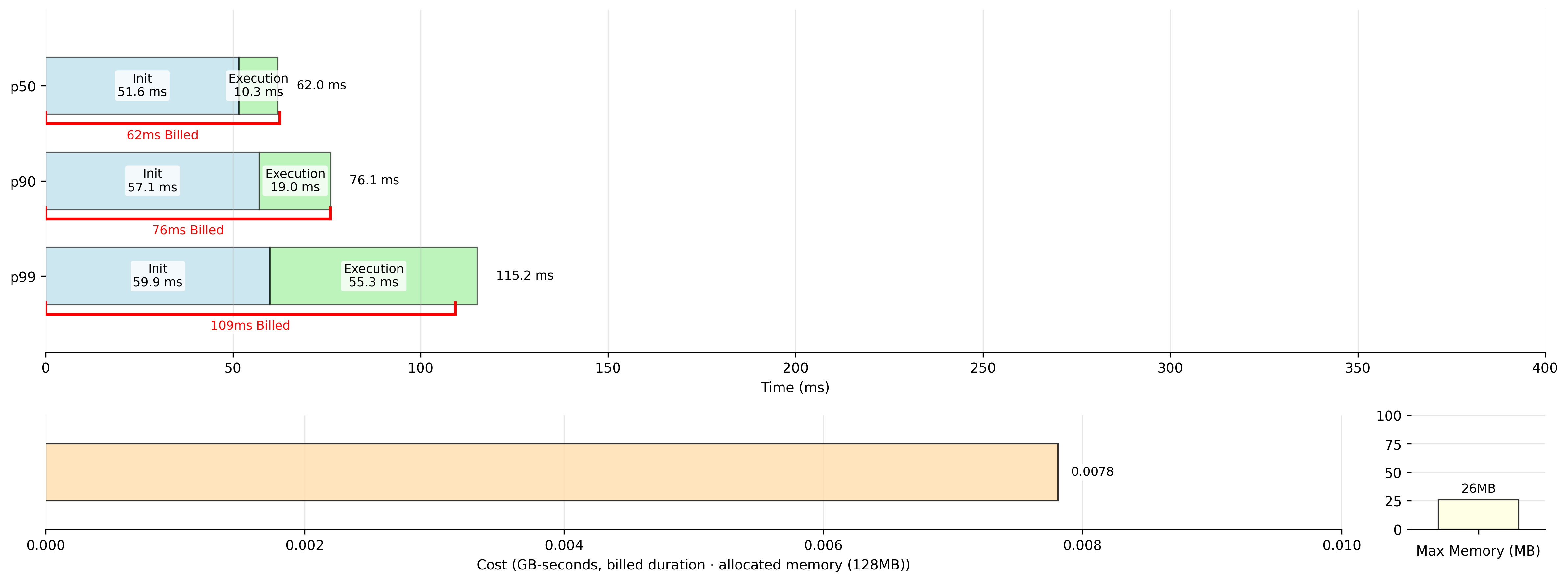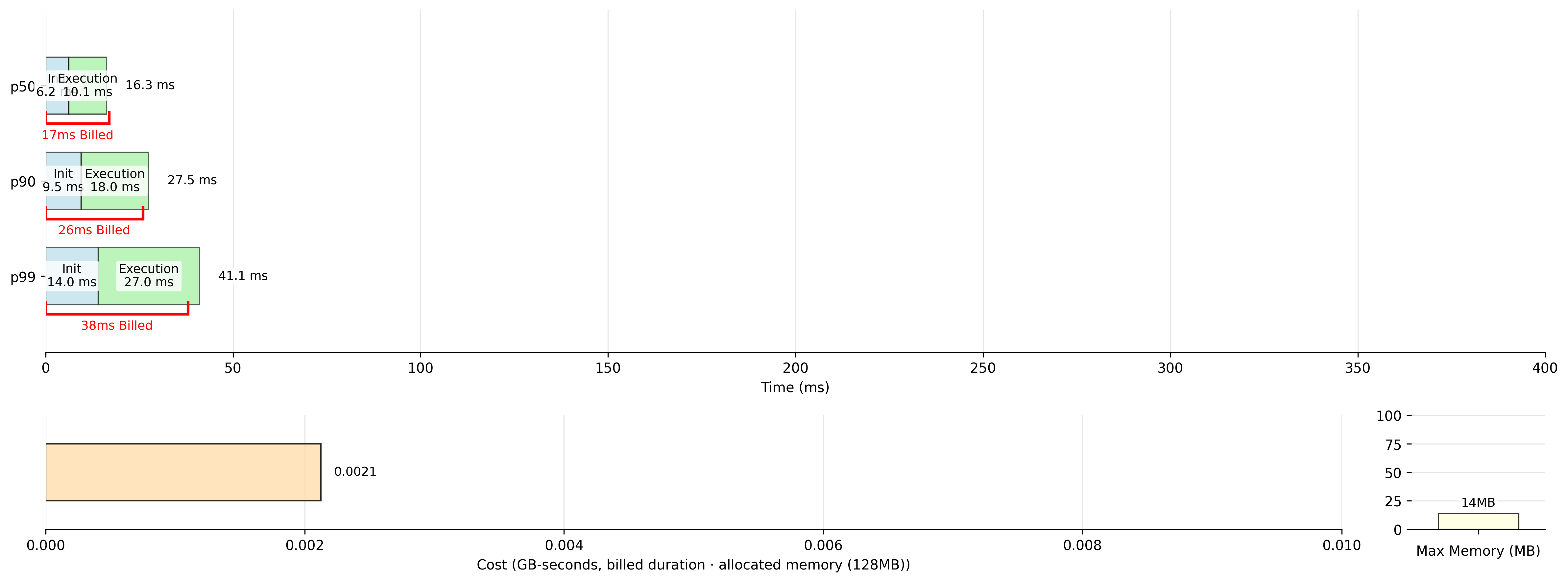2025-08-16 07:44:00
goose.icu
How? Enter Porffor
Porffor is my JS engine/runtime that compiles JavaScript ahead-of-time to WebAssembly and native binaries. What does that actually mean? You can compile JS files to tiny (
~$ bat hi.js
─────┬──────────────────────────────────────
1 │ console.log("hello blog!")
─────┴──────────────────────────────────────
~$ porf native hi.js hi
[271ms] compiled hi.js -> hi (12.9KB)
~$ du -h hi
16K hi
~$ ./hi
hello blog!
Node and Bun offer “compile” options, but they bundle their runtime with your JS rather than actually compiling it as if it was C++ or Rust. Porffor does that, allowing for much smaller and faster binaries:
~$ deno compile -o hi_deno hi.js
~$ bun build --compile --outfile=hi_bun hi.js
~$ du -h hi*
16K hi
97M hi_bun
82M hi_deno
4.0K hi.js
~$ hyperfine -N "./hi" "./hi_deno" "./hi_bun" --warmup 5
Benchmark 1: ./hi
Time (mean ± σ): 631.4 µs ± 128.5 µs [User: 294.5 µs, System: 253.1 µs]
Range (min … max): 465.3 µs … 1701.3 µs 2762 runs
Benchmark 2: ./hi_deno
Time (mean ± σ): 37.4 ms ± 1.7 ms [User: 22.5 ms, System: 16.0 ms]
Range (min … max): 33.8 ms … 42.2 ms 74 runs
Benchmark 3: ./hi_bun
Time (mean ± σ): 15.9 ms ± 1.2 ms [User: 8.7 ms, System: 9.6 ms]
Range (min … max): 13.7 ms … 19.2 ms 175 runs
Summary
./hi ran
25.24 ± 5.50 times faster than ./hi_bun
59.30 ± 12.36 times faster than ./hi_deno
What’s the trade-off? You have to re-invent the JS engine (and runtime) so it is still very early: limited JS support (but over 60% there) and currently no good I/O or Node compat (yet). But, we can use these tiny fast native binaries on Lambda!
Lambda
A few days ago I got Porffor running on Lambda, not simulated locally but really on AWS! I wrote a cold start benchmark for Node, LLRT (Amazon’s own experimental JS runtime optimizing cold starts) and Porffor running identical code:
export const handler = async () => {
return {
statusCode: 200,
headers: { "Content-Type": "text/plain" },
body: "Hello from " + navigator.userAgent + " at " + Date()
};
};
Since we’re benchmarking cold start, the workload does not matter as we are interested in just how we are running here (for context most Lambdas run for
Node

Here is Node (managed, nodejs22.x), our main comparison and baseline. Surprisingly alright, but still far from ideal: having your users have to wait up to 0.3s due to a technical limitation out of your control just sucks.
We don’t prioritize memory usage here, as AWS bills based on allocated memory rather than actual usage. In this benchmark, we allocate the minimum (128MB), ensuring it remains below that threshold. I’ll show the cost in GB-seconds, calculated as billed duration (from AWS) multiplied by allocated memory.
Also, Node is a managed runtime, meaning AWS supplies it for you. This significantly aids with initialization duration by allowing for effective caching. Crucially, we are not billed for this init duration, which profoundly impacts cost. (While an AWS blog post indicates that this will change starting August 1st, this data is from August and does not yet reflect such charges. I will update if this changes.)
LLRT

LLRT is ~3x faster than Node here, great! Unfortunately in my testing, it also costs ~1.6x more than Node. This is only due to the managed runtime trick explained before. This should change when they charge for that init or create a managed runtime once LLRT is stable. Overall, ignoring that hitch, much better than Node for this benchmark!
Porffor

Porffor is ~12x faster than Node and almost 4x faster than LLRT in this case. Plus, even with Node’s managed runtime trick, it is over 2x cheaper than Node (and almost 4x cheaper than LLRT). 🫳🎤 I hope this shows that when Porffor works, it works extremely well: Porffor’s P99 is faster than both LLRT’s and Node’s P50.
Conclusion
You might be expecting me to start shilling for you to plug Porffor into your Lambda instantly… but unfortunately not. Porffor is still very (pre-alpha) early.
Although, if you/your company have small Lambdas (ideally no Node APIs) and want a free quick look for if Porffor could help you, please email me! Porffor is actively improving and more code is working everyday.
For full transparency: benchmark code, CSV data and graphs are available on GitHub here.
Keep your files stored safely and securely with the SanDisk 2TB Extreme Portable SSD. With over 69,505 ratings and an impressive 4.6 out of 5 stars, this product has been purchased over 8K+ times in the past month. At only $129.99, this Amazon’s Choice product is a must-have for secure file storage.
Help keep private content private with the included password protection featuring 256-bit AES hardware encryption. Order now for just $129.99 on Amazon!
Help Power Techcratic’s Future – Scan To Support
If Techcratic’s content and insights have helped you, consider giving back by supporting the platform with crypto. Every contribution makes a difference, whether it’s for high-quality content, server maintenance, or future updates. Techcratic is constantly evolving, and your support helps drive that progress.
As a solo operator who wears all the hats, creating content, managing the tech, and running the site, your support allows me to stay focused on delivering valuable resources. Your support keeps everything running smoothly and enables me to continue creating the content you love. I’m deeply grateful for your support, it truly means the world to me! Thank you!
|
BITCOIN
bc1qlszw7elx2qahjwvaryh0tkgg8y68enw30gpvge Scan the QR code with your crypto wallet app |
|
DOGECOIN
D64GwvvYQxFXYyan3oQCrmWfidf6T3JpBA Scan the QR code with your crypto wallet app |
|
ETHEREUM
0xe9BC980DF3d985730dA827996B43E4A62CCBAA7a Scan the QR code with your crypto wallet app |
Please read the Privacy and Security Disclaimer on how Techcratic handles your support.
Disclaimer: As an Amazon Associate, Techcratic may earn from qualifying purchases.









































































































